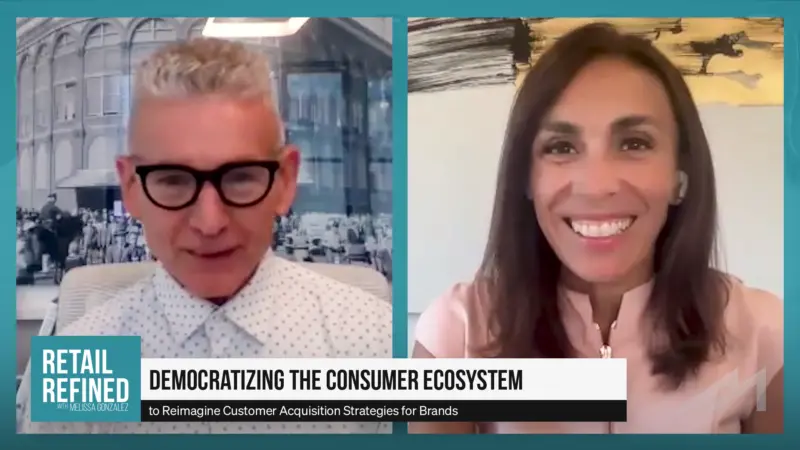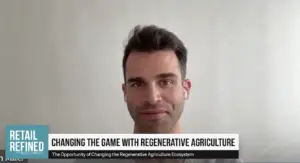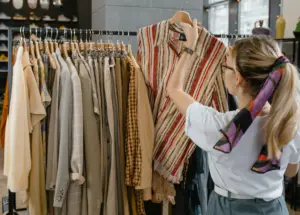Mob-led Theft is Costing the Retail Industry Billions. We Need More Than Just Store Security to Stop It.
Target has announced the closure of nine stores across California, Oregon, Washington, and New York, due to a surge in thefts and organized retail crime. And its shoplifting concerns are being echoed by other retailers: Whole Foods and Ulta Beauty are among the several businesses that have reported rising theft, while Nordstrom recently closed down an iconic San Francisco outlet. So the question is, how can the larger retail industry stop mob-led theft?
Not only does mob-led theft end up costing the industry hundreds of thousands of dollars, but it also poses significant threats to store employees. A shocking incident at a Los Angeles Nordstrom outlet saw a mob use bear spray on the security and ransack the store — causing losses between $60,000 to $100,000. In response to this growing concern, Texas Comptroller Glenn Hegar has initiated the Organized Retail Theft Task Force. Dedicated to examining the ramifications of organized retail theft and devising strategies to counteract it, this task force brings together a diverse group of experts, including representatives from major corporations like Amazon, eBay, and Target.
Dr. Kirthi Kalyanam, who has collaborated with global giants like Google and Cisco Systems, and is an L.J. Skaggs Distinguished Professor and the Director of the Retail Management Institute at Santa Clara University, tells us why stopping mob-led theft requires the same commitment as stopping organized crime.
Dr. Kirthi’s Thoughts
“Where things are at is, I think from everything we have seen and observed, retail theft, and particularly organized retail theft, is a real big problem. I have personally witnessed here for us in the Bay Area, when we were like shopping at a Macy’s, just looking around, somebody just came into the store and took, like, a cart of something. Just put a bunch of stuff in it and just walked out. I mean, it’s not one item. It’s 10, 15, 20 items and just walked out. And I’m not sure, but when did this become okay to happen, and the store security can’t do anything about it, and nor can you then call the police? How did that happen? I think that is the fundamental question that everybody needs to answer. Till that question doesn’t get answered, everything else won’t matter.
I go into a store, I pick up something and I try to walk out. That’s that, without paying for it. There’s no question, no two ways about it. It doesn’t matter if it’s $5, $15, $25. It is, it’s an issue. And a retail store has to have security that kind of holds somebody and says, wait a minute, let’s call the police and then something needs to happen, followed up on that. And by the way, if you put people right back on the street after that, there’s no way it’s going to [inaudible]. I think that’s the fundamental issue and we can all beat around the bush about it, but essentially that’s what happens.
Now, by the way, this kind of lack of enforcement, that on the backend, which causes these problems, is not something that only happens in the US. If you’re ever a tourist and you go to Greece, this problem used to be endemic in Greece. You land in Athens and if you’re a tourist, they’ll steal your bag on your phone, et cetera. There’s no chance that the police won’t be able to do anything about it, even if you go file a complaint, because if they do go, of course you’re concerned, right? You lost your passport or something. They may help you get your passport back, but the rest of the stuff you lost, like your phone and all of that, good luck with that. The same issue there, because if you prosecute somebody, they can come right back on the street within hours.
I mean, this was not the way it was 10 years ago. So this is something relatively new. And I’ve seen this go up and really become a big, big phenomenon, somewhere in the last five to 10 years. So this is not at all how the industry used to operate. They used to have security people inside the store. If they thought you were taking something without paying for it, they would actually stop you. That was kind of the norm.
I would focus on two things. I would focus on what is the minimum dollar amount around shoplifting? That’s kind of, what’s the prosecution and the kind of penalties upon that? I think that’s a fundamental thing. We need to go back and ask, where were we before all this started? And what was that policy? And why would we not want to bring back that policy? The criminal justice people will argue that, you know, we’re starting to jail people. You know, we don’t have enough places in jails. That’s why we did it and so on and so forth. But is there a different way to handle the problem? So that is something that we need to look at very carefully. The other part that I think people need to look at very carefully is really get their arms around the organized nature of this crime. And where is that? How is it getting organized? Who are the organizers? So then, maybe that’s the way to handle this and crack the code on that, which is when there are, I mean, the federal government of the United States has actually been very successful taking down organized crime. You know, organized crime used to be really big in the United States 20, 25 years ago. I mean, that’s just not true anymore. I mean, it’s gone down, you know, tremendously, right? You know, it’s not non-existent, but it’s gone down dramatically. How did they do that? What did they do? How did they create racketeering laws? What all did they do to enforce that and disappear? That was a big deal. Remember, huge, right? I mean, your garbage union was controlled by them. Your garbage truck drivers are controlled by them. There’s a whole lot of, every construction business they were involved in. So this was big, big, big deal. That’s mostly been taken down. That’s pretty impressive. My point is, we know how to do it. It’s not like this is, like, some mystery. You go back and look at the page book on how they did that. Remember, those mobsters were targeting police officers, detectives, judges, and in spite of that, we got this done. So I don’t think this is anywhere at that level. So I think that we know how to take down organized crime and we need to look at how these people are organized and then say, hey, given this organizational structure, how does that look like before? It’s a mob problem, right? This is nothing but another mob problem. It’s a different kind of a mob. So how do you take down mobs? We know the playbook for that.”
Article written by MarketScale.







